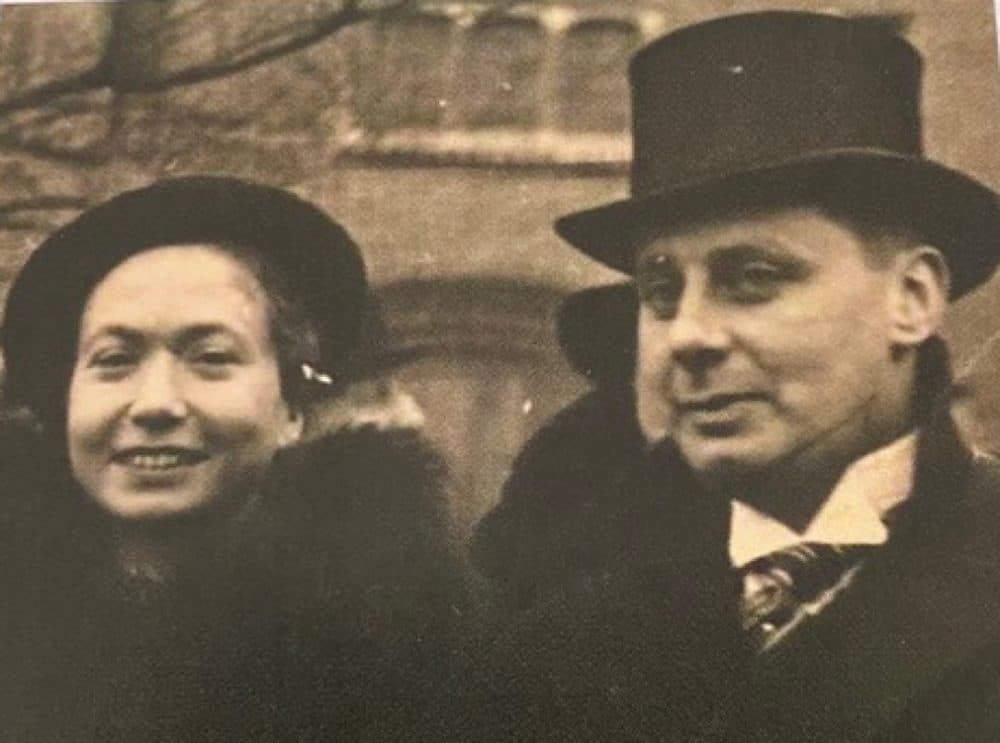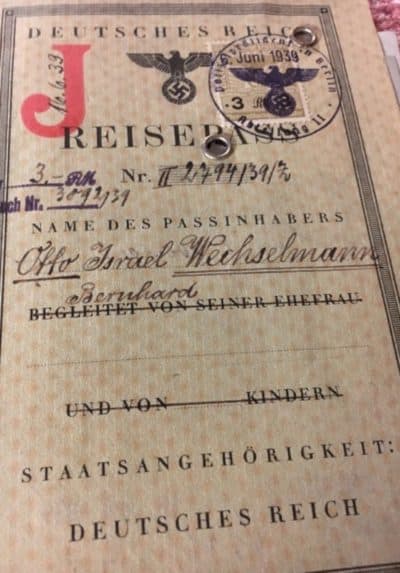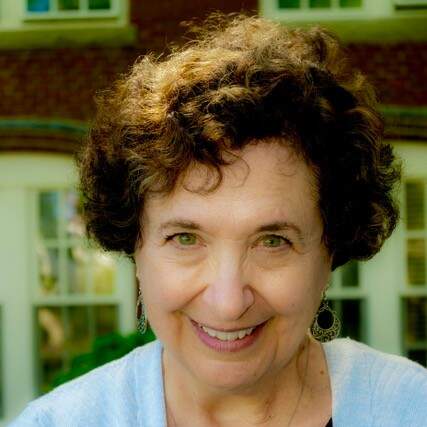Advertisement
Commentary
Are fears of authoritarianism in the U.S. hyperbole? What would my German grandparents say?

Over the past month, my social media feed has been filled with stories of people looking for ways to leave the United States.
I understand their growing fear and anxiety. We live in a country where, in some states, women are forced to carry babies resulting from incest or rape. Where children can be gunned down during their weekly spelling lessons. Where gay marriage and contraception are suddenly up for debate. Where gerrymandering and systematic voter suppression are increasing, and the worst effects of climate change are ever present, while federal action has been slow to come.
Clearly, our country has many fissures, some potentially irreparable. But I’m not ready to abandon the United States yet. I do wonder, though, whether I’ll know if or when it is time, or if I’m in danger of missing the window to exit as my grandparents nearly did.
I’m fortunate, because contrary to most of the handwringers in my feeds, I could leave the U.S. tomorrow if I so chose: I have dual citizenship in the United States and Germany. As of two years ago, I can live freely in any country in the EU because I hold a German passport, or Reisepass.
My siblings, our children and I were approved for German citizenship after a lengthy application process. German federal law grants citizenship to descendants of individuals who were “forcibly deprived of their nationality” as a result of Nazi persecution — Hitler revoked my mother’s citizenship during World War II.

To accompany my nascent citizenship, I’ve been studying German for the past year or so on Duolingo. My second passport and fledgling language skills are the insurance policy I hoped I'd never need.
I think of my relatives and refugees worldwide, who have been forced to flee their countries because of war, oppression and persecution. Mothers and children walking from Guatemala to the U.S. border for safety. Or the Afghan refugee children I tutor, whose families remain in their country of origin, where they are in constant danger of being killed by the Taliban. Or thousands of Ukrainian refugees, forced to leave their homes with nothing but the contents of a roller bag and a beloved pet, as their apartment complexes were bombed.
The world is full of refugees who have had no choice but to leave their homelands, because the alternative is potential death.
My mother and grandparents were refugees. They fled Nazi Germany in June 1939. Although all of our German ancestors were Jewish, my grandparents had converted to Christianity and were married in a church in 1931. (They didn’t consider any religion to be a critical part of their identity.) Their predominant source of identity was as proud Germans, and they were well integrated into Berlin society. My grandfather Otto naively believed they were safe against the rising anti-Semitism of the 1930s because my grandparents and their daughters were all baptized.
Otto was optimistic through Germany’s initial prosperity under Hitler, but the subsequent power shifts by the Third Reich were swift and devastating. Yet he continued to be stubbornly optimistic, even as their beloved black, white and red flag was replaced by the swastika and stormtroopers yelled sieg heil in the streets. My family remained in Berlin after the Nuremberg laws were enacted, which stripped their rights as German citizens, invalidated their baptisms and gave them new middle names: "Israel" for my grandfather, "Sara" for my mother. They stayed through the Reichstag fire, and even Kristaltnacht, helplessly watching hundreds of storefronts being destroyed.
Eventually, Otto lost his family business, the right to have his daughters attend their school and most of his money. My grandparents stayed in their country through all of it, because Germany was their home, as it had been for generations of my ancestors. They refused to leave when they could have done so safely, because of deep love for their country.
I study the swastika and prominent "J," signifying them as Jewish -- then I look at my crisp new Reisepass, and wonder what my grandfather would think.
Otto initiated the lengthy and expensive process of obtaining a sponsor, passports and necessary visas to leave Germany when it became clear that the family was facing increasing personal danger. Their descendants and I applied for — and were approved for German citizenship — because we had these required documents, including my mother’s and grandfather’s original worn and faded passports.
I study the swastika and prominent "J," signifying them as Jewish -- then I look at my crisp new Reisepass, and wonder what my grandfather would think.
I recall Otto describing the period of intense Christian patriotism in Germany, before Hitler initiated his fascist reign. Are we at a similar point of erosion of church and state in the U.S.? I wish my grandfather was still alive so I could ask him to compare America today to pre-1933 Germany. Then I’d have a better sense of whether history really is repeating itself, or whether people are being hyperbolic about rising authoritarianism.
It does feel like the United States is rapidly changing. But like my grandparents, I won’t leave my country unless I face imminent personal danger. I am first and foremost an American citizen, just as my grandparents and mother were first and foremost German citizens.
I’m grateful for my securely stowed Reisepass, but aware of a terrible irony: I might eventually be safer in the very nation that sent my great grandmother to the gas chamber and exiled my family.
